The non-aggression principle is a libertarian ideal which results in a very simplified black and white morality. While this kind of morality is logical it is not necessarily practical for best choice under uncertainty where stakes are high. This discussion is on the limits of the non-aggression principle from the perspective of a practical consequentialist.
What is the non-aggression principle?

Many libertarians already know what the non-aggression principle is but for people who are not libertarian the non-aggression principle is the primary principle which forms the logical basis for libertarian ideology. The non-aggression principle states that the initiation of force by one party against another is illegitimate and wrong. From this principle you can understand the logic behind every libertarian policy because libertarianism falls into a deontic logic.
What are deontological ethics?
Deontological ethics are ethics based upon strict adherence to rules. Deontology is based on obligation, duty, and rules. The non-aggression principle at it's foundation contains a rule which states in essence "thou shall not". Thou shall not is the essence of deontological ethics and deontic logic.
What is the problem with "thou shall not?"

Deontology is an ethics which at it's foundation has a set of rules or commandments about what you cannot do. For example the bible has 10 commandments from God. These 10 commandments would be considered the divine commands and in a logical faith based context we would identify the 10 commandments as an example of divine command theory.
Thou shall not may tell people what they shouldn't do in some situations where there are specific actions or behaviors on the black list. Unfortunately this very black and white thinking does not apply to every possible situation or combination of situations and the result is that when there isn't a clear command or any rule on the list for what to do in the situation the follower may be lost.
What is deontic logic?
Deontic logic allows for the symbolic formal representation of deontic morality. Concepts like permittted, forbidden, required, optional, all can be contained in deontic logic. Deontic logic can reveal whether a deontic morality based law is logically consistent. Deontic logic may actually have use cases for access control policies in information security.
What is consequentialism?
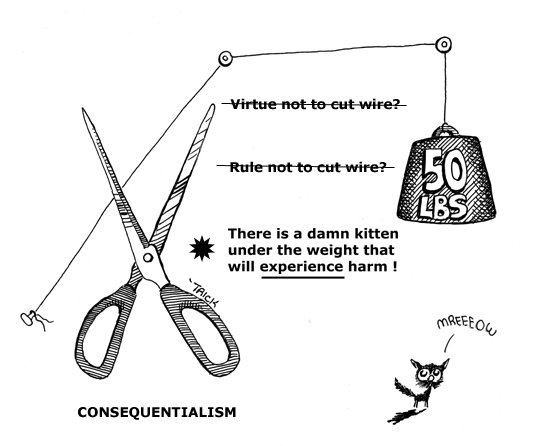
The morality of a consequentialist is based on measurement of the outcomes. Whether previously made decision is right or wrong depends on what outcome the decision appears to have generated. Some consequentialists are utilitarian and in the case of a utilitarian their calculation may be the greatest good for the greatest number. The greatest good of course is not always easy to define. There is also preference utilitarianism where the greatest good is that which satisfies the preferences or promotes the interests of the beings involved. It can be said that consequentialism is much more difficult and Joshua Greene in his book Moral Tribes considers it the manual mode of ethics.
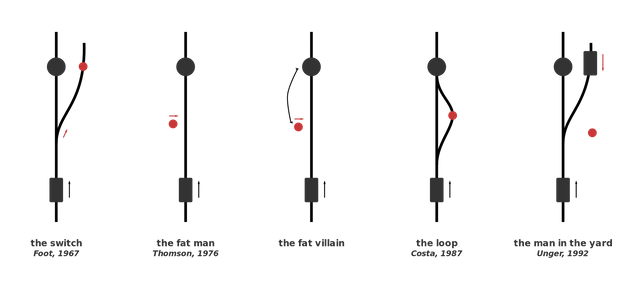
Joshua Greene in his dissertation; "The Terrible, Horrible, No Good, Very Bad Truth about Morality and What to Do About it" highlights some of the practical problems which can emerge if a more scientific outcome based view of morality is not taken. His work distinguishes between moral realism and moral anti-realism. Joshua Greene supports passing on and citing his work with this note attached which I'll add...
Note to readers of The Terrible, Horrible, No Good, Very Bad Truth
about Morality and What to Do About it, Doctoral Dissertation of
Joshua D. Greene in the Department of Philosophy, Princeton
University, June 2002. You are welcome to read this work, pass it on to others, and cite it. I only ask that if you pass on this work to someone else that it be passed on (1) in its entirety, (2) without
modification, and (3) along with this note. I consider this a work in progress. It is currently under review in its present form at an academic press. I intend to revise and expand it substantially before publishing it as a book, so much so that the book and the dissertation will probably best be considered separate works. Comments are welcome.
You can contact me by email ([email protected]) or by regular mail: Joshua Greene Department of Psychology Princeton University Princeton, NJ 08544
What is moral anti-realism?
Moral anti-realism contrasts with moral realism. Moral realists believe there is an objective morality and that there is some way to determine an objective right and wrong. Moral anti-realists do not believe there is any objective right and wrong but merely subjective right and wrong. The self interest of an individual may have an influence on what is right or wrong for that particular individual but it does not mean there is always a solution which is the most right for all individuals due to diverging interests.
In the case where a moral person is of the tribe that believes in divine command from God or some other higher entity then of course it could be stated by the moral realist that the objective morality comes directly from God or that higher entity. The problem is not everyone will believe in that God or higher entity or trust the validity of it's commands. Gut instinct might also allow some people to feel an action is right or an action is wrong without knowing the consequences but it does not change the fact that gut instinct is often wrong and good intentions often lead to really bad consequences. The moral anti-realist is likely to be a consequentialist because they will not believe in any kind of objective morality but only that some actions lead to better outcomes than others.
What are moral tribes?
Joshua Green describes moral tribes in his video below.
A main distinction between the two main tribal factions are that you have the moral realists and the moral anti-realists. This breaks down in many cases into the deontologists and the consequentialists. Of course there is naunce here but in general you have some people who follow rules written down for them primarily and this would represent the moral mainstream. In the mainstream cases the individual is in automatic mode where either they follow a set of rules strictly or they may follow their gut feelings. These gut feelings or gut instincts allow a person to do what they think feels right and in some cases what they feel is right will lead to a good outcome which confirms things. On the other hand the manual mode is the mode of the consequentialist and in this mode there way the individual feels about a particular decision is separate from whether or not it's the right decision. In this case the individual may act the exact opposite of how their instincts tell them how to act.
Where do moral instincts come from?
This is speculation on my part but my guess is that classical and or operant conditioning plays a role in the development of moral instincts. For certain generations of children it was common to be spanked or in other words punished if an incorrect action or behavior was taken. This association with pain and punishment may condition a child into becoming an adult who has some flashback of their parent punishing them, or some feeling of shame if they disappoint their parent, and they don't ever want to feel that again so they avoid behaviors which produce those feelings in themselves and others. This is a feelings based way of deciding right and wrong but for many social situations it works and in some situations where empathy and or compassion are required it works very well.
On the other hand there are situations in the grey area where moral instincts can actually get in the way of the necessary heroicism or necessary actions to avoid grave consequences. A person may as a child have been taught that lying is wrong and to never lie. This person may have been severely punished for lying by what by today's standards may seem like abuse. Then as an adult there may be a situation where the only way to save 100 or 1000 lives is to lie to protect those lies but because of their guilt they find they cannot tell a lie to authority.
In the case where the person is a true deontologist who follows strict rules then it would mean thou shall not lie cannot be violated. The punishment is the possibility of going to hell for all eternity. In this case if they fear hell more than anything which can happen in life then the consequence for being a liar may outweigh any possible consequence for telling the truth. In a situation like this it would be said that lying would simply never be allowed under a deontic logic no matter what the real world consequence of it is.
And this highlights a distinction between consequence based ethics and deontology. Deontological ethics based on religious doctines which have heaven and hell as the reward and punishment are not going to be about producing the best real world consequences. In fact, a true believer might not give a damn about the consequences to this world or to the people of this world because it's really about the consequences to themselves in the next world. Moral absolutism ultimately leads to an ethics where the consequences of a person's actions are not as important as following an absolute moral rule or ideology.
What is moral absolutism?
As we now know, moral absolitism is putting personal morality above any concern for the consequences. A moral absolitist will consider some action right or wrong no matter what the consequences. This would mean that under an oppressive regime the moral absolutist will not deviate from their morality even if the consequence is the death of their neighbor, their family, their neighbor, or themselves. Clearly moral absolutists exist and in many cases moral absolutists are quite passionate about what they believe in.
What is NAP absolutism?
The non-aggression principle at least in my opinion is just an ideal. It's a good idea, it's pretty, but it does not match with the current human nature. Human beings do not get along and while it would be nice if human beings did get along and everyone could live a non aggressive life, it's not currently that kind of world. As a result I have reached a conclusion that NAP absolutism is not practical for many of the same reasons that communism isn't practical.
I would favor an NAP compatible solution if that solution can produce similar or better consequences than a less than compatible solution. At the same time I would not let people die or let WW3 be triggered because of the NAP. The NAP has to protect life and in my opinion there are higher priorities. The United States Constitution for example states, life, liberty, and pursuit of happiness (property). I don't think the order of that sequence is by accident and life has to be protected, as does liberty, and in many cases a decision has to be made which can result in either a cost of life or a cost of liberty. Lives you cannot get back once lost but liberty lost can be regained depending on what it is.
Under what circumstances would you violate the NAP if any?
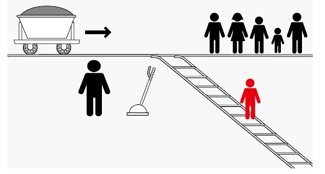
NAP absolitism would put liberty before everything. If an individual is willing to sacrifice everything to adhere to the NAP then they are free to make that decision. At the same time, in cases where more lives can be saved by aggression than by non aggression then what would you choose?
References
I understand that the labels you are using are there to aid analysis and make sense of a complex question. However, I don't identify with any of them because they are drastically over-simplistic. Also, in order to make your point about the non-aggression principle, you utilize an example with a lose/lose choice forcing anyone engaging with the exercise to accept a potentially false choice between one death or many. But how often is the choice so stark? There is so much contextual information I would need before I could even begin to engage with the choice. Can I derail the carriage? How far away am I? Do I have transport? Explosives on me? How are the possible victims secured to the track? Is there time to reach one or both groups? Is there anyone else nearby? Have I noticed that the track leading to the single victim is damaged and the carriage will never reach them? Instead of wasting time trying to work out the relative value of life on the chopping block, i'd be trying my best to save the group most at risk.
The cost of letting ourselves be forced into this false choice scenario is that we accept violence is acceptable under certain circumstance and then those who want to use violence simply create the circumstance under which we feel it is acceptable. They do this repeatedly. Throughout history, violence has been justified as a means to an end. But has it ever ended? No. We are better off striving towards a principle than accepting our failure to implement it.
Downvoting a post can decrease pending rewards and make it less visible. Common reasons:
Submit
Many people have to make choices which you might consider "lose/lose" situations on a daily basis. Many people make critical decisions on a daily basis. If you're in a position in life where you don't have to make these sorts of decisions often then you're in a privileged position.
An example which is more relatable is stealing. The bible says "thou shall not steal" which would be an example of deontological ethics. A pregnant mother or a father who has a child, or a child who has a sick mother or father, can easily face a situation where they either choose to violate the rule and steal or have reduced options for the person or people they care about. It could be that by stealing they save the life of their child, parent, or friend, but then it violates God's law.
It's not a false choice. It's a legit problem called a dilemma and game theory highlights many similar problems such as the prisoners dilemma.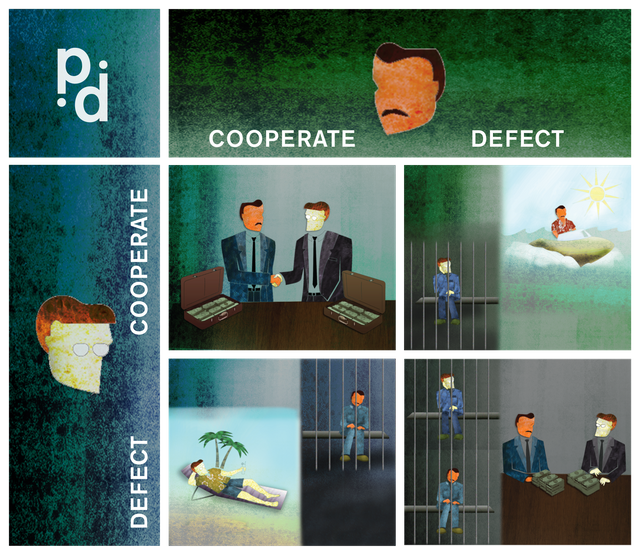
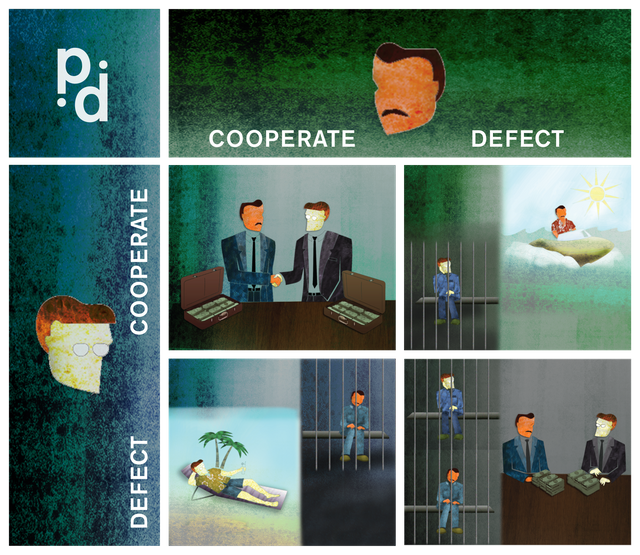
In an ideal world everyone would cooperate. In a world where there is perfect communication combined with universal enhanced compassion maybe we could have more cooperation. The problem is player A cannot effectively communicate with player B and as a result there is no way for player A to coordinate with player B on a gentleman's agreement for what to do under interrogation. It is shown that when the communication ability exists and both players have a desire to cooperate then of course cooperation is going to have a better overall outcome over many games but over a single game the defector could win.
Some situations are no win situations. Some situations only allow the participant to choose which way to lose from an array of options. So choosing who dies, choosing who suffers, but you might not be able to stop someone from dying or suffering.
References
Downvoting a post can decrease pending rewards and make it less visible. Common reasons:
Submit
This bot detected images from a legacy source and decided autonomously
to upload them to the InterPlanetary FileSystem (IPFS)! The upload was
successfull and the pictures can be found here:
Downvoting a post can decrease pending rewards and make it less visible. Common reasons:
Submit